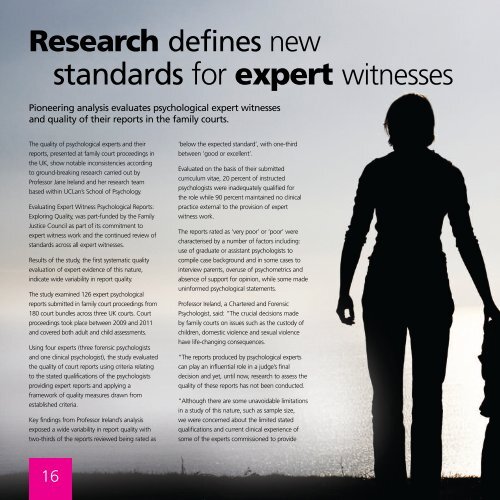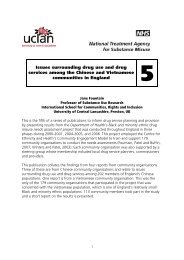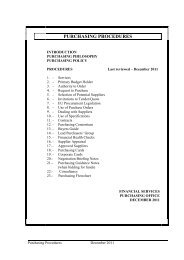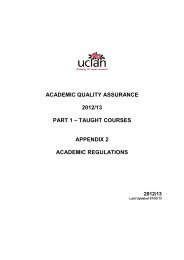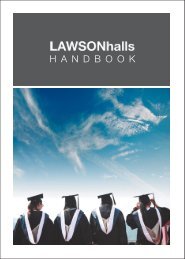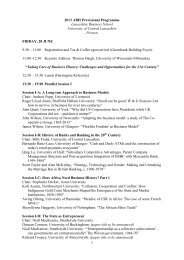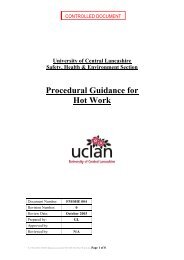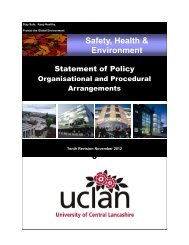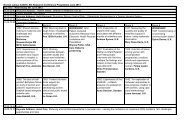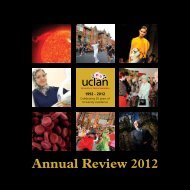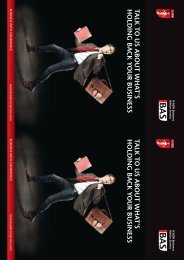Layout 2 - University of Central Lancashire
Layout 2 - University of Central Lancashire
Layout 2 - University of Central Lancashire
You also want an ePaper? Increase the reach of your titles
YUMPU automatically turns print PDFs into web optimized ePapers that Google loves.
Research defines new<br />
standards for expert witnesses<br />
Pioneering analysis evaluates psychological expert witnesses<br />
and quality <strong>of</strong> their reports in the family courts.<br />
The quality <strong>of</strong> psychological experts and their<br />
reports, presented at family court proceedings in<br />
the UK, show notable inconsistencies according<br />
to ground-breaking research carried out by<br />
Pr<strong>of</strong>essor Jane Ireland and her research team<br />
based within UCLan’s School <strong>of</strong> Psychology.<br />
Evaluating Expert Witness Psychological Reports:<br />
Exploring Quality, was part-funded by the Family<br />
Justice Council as part <strong>of</strong> its commitment to<br />
expert witness work and the continued review <strong>of</strong><br />
standards across all expert witnesses.<br />
Results <strong>of</strong> the study, the first systematic quality<br />
evaluation <strong>of</strong> expert evidence <strong>of</strong> this nature,<br />
indicate wide variability in report quality.<br />
The study examined 126 expert psychological<br />
reports submitted in family court proceedings from<br />
180 court bundles across three UK courts. Court<br />
proceedings took place between 2009 and 2011<br />
and covered both adult and child assessments.<br />
Using four experts (three forensic psychologists<br />
and one clinical psychologist), the study evaluated<br />
the quality <strong>of</strong> court reports using criteria relating<br />
to the stated qualifications <strong>of</strong> the psychologists<br />
providing expert reports and applying a<br />
framework <strong>of</strong> quality measures drawn from<br />
established criteria.<br />
Key findings from Pr<strong>of</strong>essor Ireland’s analysis<br />
exposed a wide variability in report quality with<br />
two-thirds <strong>of</strong> the reports reviewed being rated as<br />
‘below the expected standard’, with one-third<br />
between ‘good or excellent’.<br />
Evaluated on the basis <strong>of</strong> their submitted<br />
curriculum vitae, 20 percent <strong>of</strong> instructed<br />
psychologists were inadequately qualified for<br />
the role while 90 percent maintained no clinical<br />
practice external to the provision <strong>of</strong> expert<br />
witness work.<br />
The reports rated as ‘very poor’ or ‘poor’ were<br />
characterised by a number <strong>of</strong> factors including:<br />
use <strong>of</strong> graduate or assistant psychologists to<br />
compile case background and in some cases to<br />
interview parents, overuse <strong>of</strong> psychometrics and<br />
absence <strong>of</strong> support for opinion, while some made<br />
uninformed psychological statements.<br />
Pr<strong>of</strong>essor Ireland, a Chartered and Forensic<br />
Psychologist, said: “The crucial decisions made<br />
by family courts on issues such as the custody <strong>of</strong><br />
children, domestic violence and sexual violence<br />
have life-changing consequences.<br />
“The reports produced by psychological experts<br />
can play an influential role in a judge’s final<br />
decision and yet, until now, research to assess the<br />
quality <strong>of</strong> these reports has not been conducted.<br />
“Although there are some unavoidable limitations<br />
in a study <strong>of</strong> this nature, such as sample size,<br />
we were concerned about the limited stated<br />
qualifications and current clinical experience <strong>of</strong><br />
some <strong>of</strong> the experts commissioned to provide<br />
16


